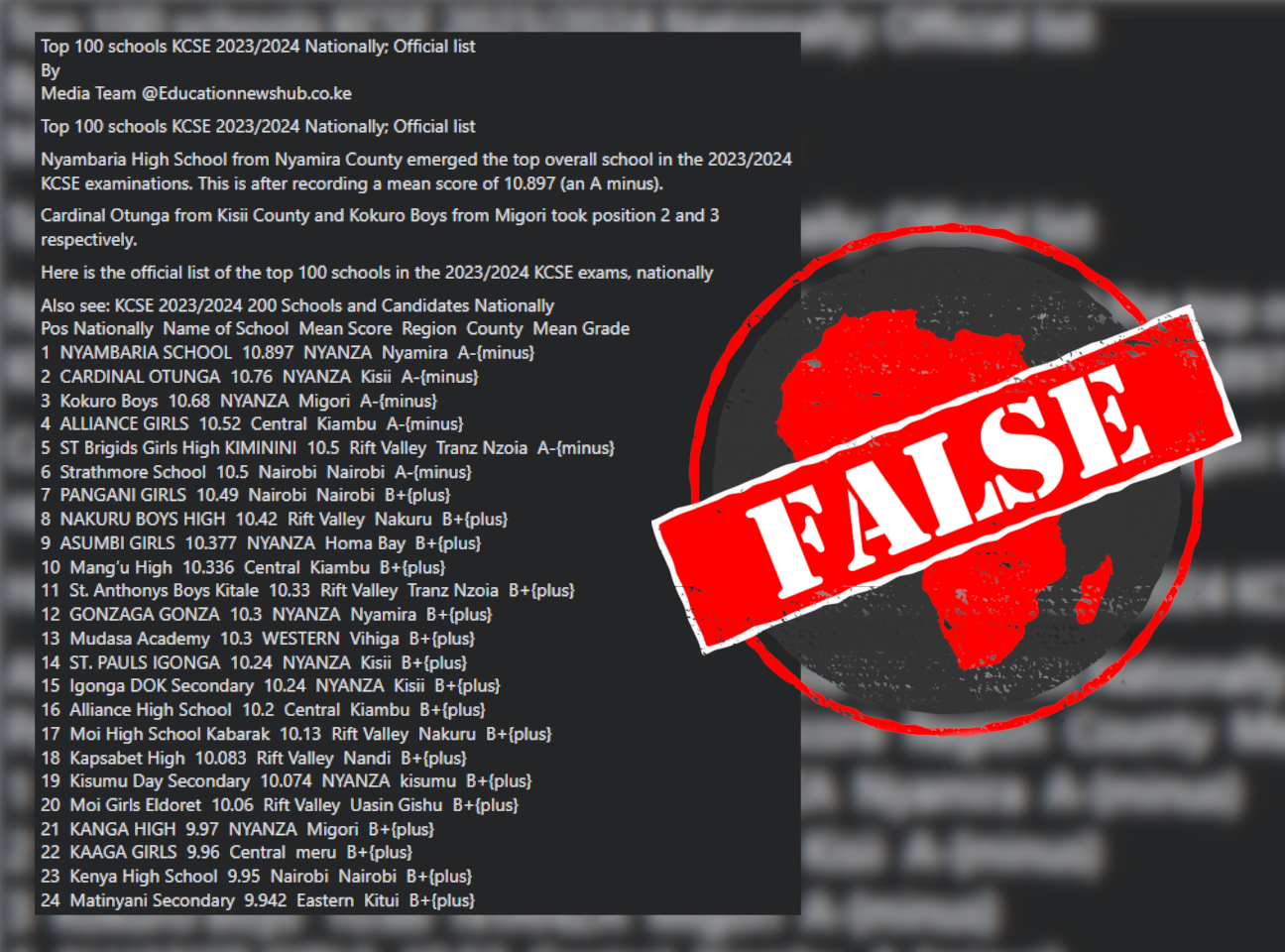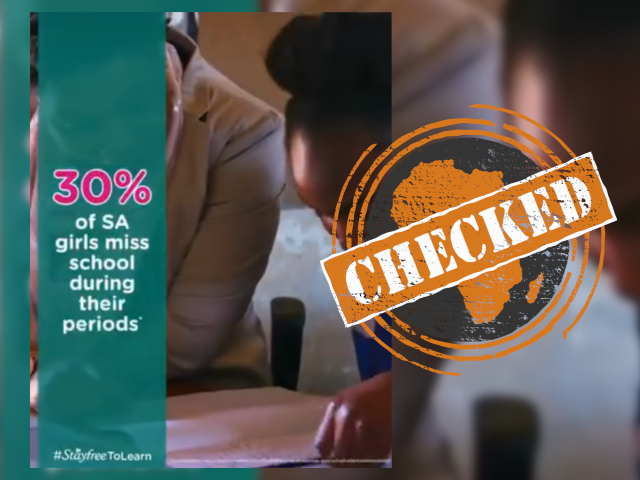IN SHORT: A list circulating online claims to officially show the top schools in the 2023 Kenya Certificate of Secondary Education (KCSE) exams. But it’s false. The Kenyan government no longer ranks secondary schools by their KCSE results.
An “official” rankings list claiming to show Kenya's top secondary schools for the 2023 exams is going viral on social media.
The Kenya Certificate of Secondary Education (KCSE) exams are taken at the end of secondary school. The results determine access to tertiary education.
On 8 January 2024, education minister Ezekiel Machogu released the results of the 2023 KCSE examinations. Rankings started circulating online hours after the official release of the results.
A screenshot of the list in question has been circulating online with congratulatory messages to the schools from Facebook users, as seen here, here and here.
The list, first published by the News Hub blog, has also been shared on Facebook here, here, here and here.
But does it really show the ranking of the top schools in Kenya’s 2023 KCSE exams?

Ranking discontinued to prevent unhealthy competition
In 2014, the Kenyan government banned the ranking of schools based on their performance in national exams, in an attempt to end exam irregularities and discourage unhealthy competition.
In the past, Kenyan high schools have tried to attract students who score well in the national primary school exams. However, some have used detrimental methods to gain an advantage over their rivals.
Kenyan media outlets often compile their own lists from the results. But these are not official.
The KCSE is administered by the Kenya National Examination Council, which has dismissed the circulating list.
The council shared a screenshot of the list on X (formerly Twitter), saying: “Fake Post Alert!”
Republish our content for free
For publishers: what to do if your post is rated false
A fact-checker has rated your Facebook or Instagram post as “false”, “altered”, “partly false” or “missing context”. This could have serious consequences. What do you do?
Click on our guide for the steps you should follow.
Publishers guideAfrica Check teams up with Facebook
Africa Check is a partner in Meta's third-party fact-checking programme to help stop the spread of false information on social media.
The content we rate as “false” will be downgraded on Facebook and Instagram. This means fewer people will see it.
You can also help identify false information on Facebook. This guide explains how.



Add new comment